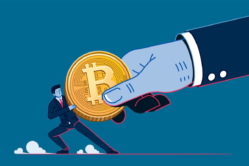Right now savings account rates are relatively low, which leaves a lot of people looking for a better return on their money.
While many people prefer leaving their money in a standard savings account, there are some options where you may be able to earn a little more interest.
These tips are primarily for people who have an established emergency fund and are looking for a better return on investment for money they do not need immediately.
Table of Contents
1) High Yield Money Market Accounts & High Yield Checking Accounts
Many banks offer high yield savings accounts, high yield money market accounts, and high yield checking accounts, each of which may offer different interest rates or benefits.
Be sure to check with your local bank or credit union, which may have better offers than you can find online – particularly for high yield checking accounts.
Also, be sure to read the fine print before opening an account because money market accounts and high yield checking accounts often have a list of requirements that must be met to achieve the highest interest rates.
High yield checking accounts often have a long list of requirements, such as maintaining a minimum balance, completing a certain number of debit card transactions per month, a maximum deposit for the highest interest rate and more.
In some cases, they are more hassle than they are worth.
2) Certificates of Deposit (CDs)
Certificates of deposit are term deposits that customers deposit with a bank for a set period of time.
The amount of money banks can lend is tied to their deposits, so having a customer deposit locked in allows banks to offer better interest rates than a standard savings account.
Most banks will charge a penalty if you end your CD before it has matured, so be careful not to put your money in a CD if you think you will need it soon.
If you are interested in doing a CD, check out Discover Bank CD Rates.
How to Avoid Breaking CDs
The two best ways to avoid breaking CDs are to build a CD ladder or use a no-penalty CD.
CD Ladders stagger your CDs on a monthly or annual basis, giving you access to a portion of your funds with more frequency.
No-penalty CDs allow you to withdraw your funds without incurring a penalty.
These often come with shorter terms and potentially lower interest rates than other CDs, but often beat high yield savings account rates.
You can find no-penalty CDs at Ally Bank.
3) Purchase Bonds
Bonds are essentially loans that you give to the government or a business in return for a promise of payment at a future date.
Not all bonds are guaranteed, so be sure to investigate the risks before investing.
You can purchase guaranteed savings bonds from the US government which are exempt from state and local taxes.
Many states, cities, counties, and towns issue Municipal Bonds to pay for public projects and other activities, such as building schools or repairing roads.
The majority of municipal bonds are exempt from federal, state, and local taxes, which, depending on your tax bracket, can raise the effective yield above other types of bonds or above savings accounts.
4) Retirement Contributions
If you have extra cash in your savings accounts, you can consider increasing your retirement contributions above what you are currently making.
You can contribute up to $5,000 in a Roth or Traditional IRA, and you can contribute up to $17,000 to your 401k.
One way to max out your 401k contributions this year is to increase your payroll withholding and make withdrawals from your savings account to make up for the difference in cash flow.
Only do this if you have a buffer in savings and don’t forget to reset your contribution levels after you max out your 401k.
5) Peer to Peer Lending
Before reading further you should realize the P2P lending is not a guaranteed investment and is not backed by the FDIC.
So if you are looking for a place to stash your short term reserves without risk, then this is not an option for you.
But if you are looking at a short term investment with potential returns better than a standard savings account, then you may consider purchasing loans through Lending Club or Prosper, two of the leading P2P lending institutions.
While these loans are not guaranteed, there is an opportunity to return much more than a standard savings account or other investments, with Lending Club loans recently returning an average of over 9%.
6) Pay Off Debt
If you have extra cash sitting around your savings account and want to get a better return than current interest rates, then consider making additional payments on any outstanding loans, including your mortgage.
Chances are you will receive about a 5% return on investment or higher, which is much better than the sub 2% interest rates offered by most banks right now.
Where Is the Best Place to Stash Your Cash?
The best place to stash your cash depends entirely on your financial situation and risk tolerance.
You should maintain your emergency fund and as much additional cash as you deem necessary.
If you have extra cash after that then it doesn’t hurt to look for a better return on your investment.



Comments:
About the comments on this site:
These responses are not provided or commissioned by the bank advertiser. Responses have not been reviewed, approved or otherwise endorsed by the bank advertiser. It is not the bank advertiser’s responsibility to ensure all posts and/or questions are answered.
Stephanie says
You ought to make it clear that peer-to-peer lending is not available to working-class people under any circumstances. I wasted 15 minutes of my life to find out I’m not eligible because I don’t meet accreditation nor minimum income limits for investing.
We as working class people are looking for high-yield instruments beyond 2-3% without the complications of the stock markets. We want something simple but more high-yielding to protect against inflation.
Jennifer says
How do I buy Municipal bonds? I have a Fidelity account where I own a bond fund but I would like to buy Municipal bonds for their tax advantage. Everyplace says purchase from a broker, does Fidelity (or a similar company) sell Municipal bonds?
Craig says
My alternative is money market accounts. They have been working fine with me and are set with my brick and mortar bank and so far have been happy. It keeps all my accounts in one place.